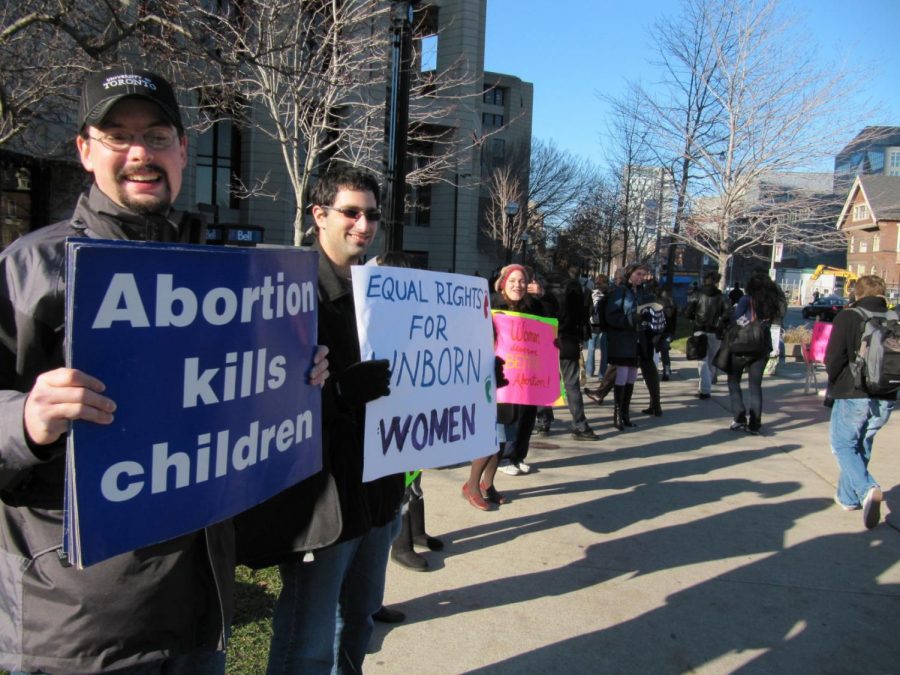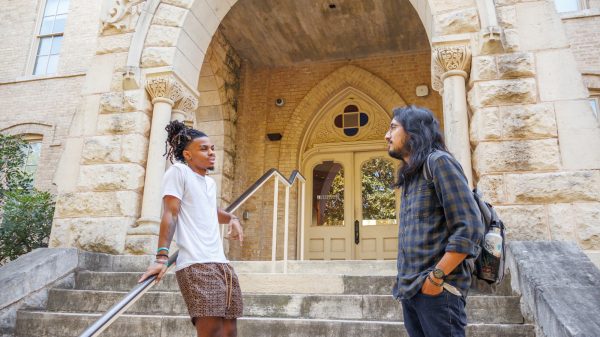Abortion difficult to legislate yet victimizes unborn children
But as we exercise our free will, it is important to think about how our choices affect those that have none.
Each week, we explore both sides of a current issue through opposing Viewpoints. The alternate editorial for this week’s Face Off can be found here: “Female autonomy key issue in debate on abortion access.”
In the United States alone, 730,322 abortions were legally performed in 2012 according to the Center of Disease Control. The alarming rate at which innocent children are being legally aborted in the United States deserves a greater explanation than simply the right of a woman to choose.
In their pro-choice advocacy, many people seek to defend the right of a woman to choose and then hide behind the excuse that the humanness of a fetus does not exist until a certain period. All of these arguments are merely ways to shy away from the responsibility that we have as a human race to defend those that have no voice.
It is undoubtedly important that, as humans, we have free will and the ability to choose. But as we exercise our free will, it is important to think about how our choices affect those that have none.
Pro-choice supporters often glorify the right of a woman to choose as if free will is the most sacred entity in life. They forget about the innocent life that had no say in the matter and the fact that less than one percent of abortions are a result of rape or incest, according to the Guttmacher Institute. Which means that it most cases, it is more choice that led to abortions than it is unfortunate circumstances.
Rather, supporters focus on the choice that makes it easy for them to dodge responsibilities as a mother and end the life of an innocent child before the child can even see the world.
Absolutely everything we do in life is a choice. The simple fact that someone exercises their right to choose does not make it good. Thievery is a choice. Cheating is a choice. Murder is a choice. Although all of these acts are choices, we have come to understand that if we choose to participate in any of these acts, it will inhibit another person’s right and so we try to refrain from them. The principle can be similarly applied to the topic of abortion.
In recent years, it seems as though pro-choice dialogue has shifted from focusing on the woman’s freedom of choice to reducing innocent unborn babies to being less than human.
The argument that a life is not human until a certain period in the woman’s pregnancy is not a scientific claim, rather it is an opinionated claim that leaves room for every person to determine what humanness means to them.
Humanness can be characterized as the moment of conception or the moment a child is actually born. Because of the wide scope of jurisdiction, the idea of a fetus being a non-human cannot be a solid justification for legalized abortions.
There is no concrete way to test the humanness of an unborn fetus, but what is concrete is the knowledge that there is no other way of creating human life than through the fertilization of an egg by a sperm. That should be sacred to us as human beings.
Abortion is a lawful act in the United States, but who is to say that the law is the rightful indicator of what is right and wrong? Laws change, as do people’s mindsets.
While we as a nation cannot criminalize the right of a woman to make choices pertaining to her body, we also cannot sit around and pretend that ending the lives of innocent unborn children is moral. If our laws are to reflect what we value as a nation, then laws advocating abortion access show that we in these great United States of America value choice over life.






